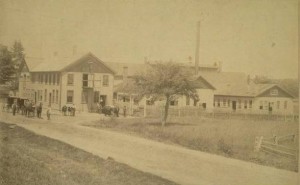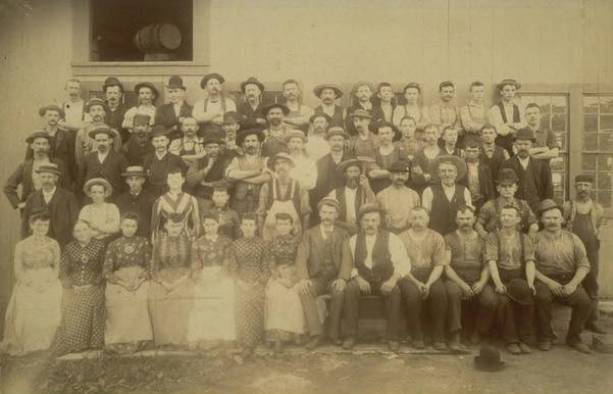At first glance, the town of Southington appears to be a quiet, bedroom community. Buried in its past, however, are the foundations of an industry that helped build a nation from the ground up. Southington once boasted a thriving bolt industry. For over a century, the nuts and bolts (particularly carriage bolts) used to transform building materials into safe and resilient structures came from the factories in Southington. The town’s products played a critical role in reshaping the American landscape.
Bolt production got its jumpstart in Southington with the 1819 death of Asa Barns, who owned of a famous local tavern that once hosted the comte de Rochambeau. Inheriting the home/tavern from his father, Philo Barnes leased the building to Micah Rugg and Levi B. Frost, two pioneers in the development of mechanical bolts. Frost, a blacksmith who specialized in shoeing oxen and making hand-forged bolts and other products, bought the house from Barns outright in 1820.
The Frost-Rugg partnership did not last long, however, and the men parted ways early in their enterprising years—each going on to make their own contribution to the growth of the industry. Frost manufactured bolts in a shop across the street from his house and, doing business as L. B. Frost & Son, originated the first lathe for turning bolt heads. In 1844, the company began making nuts from old boiler plates and managed to stay in business into the early 20th century.

Frost Bolt Company, ca. 1885, Marion (Southington) – Connecticut Historical Society and Connecticut History Online
In 1839, Micah Rugg established his own business and secured the first patent for mechanically trimming bolt heads. The plant he built with Martin Barnes in 1839 became the first bolt manufacturing plant in the United States. Unfortunately, Rugg’s success did not last, and when his business failed, he joined perhaps the most famous manufacturer in Southington, the Clark Brothers Bolt Company.
The Clark Brothers Bolt Company
Founded in 1854 by brothers William, Henry, and Charles Clark, the Clark Brothers’ company made bolts, nuts, washers, screws, and rivets over the course of its existence. A fire destroyed the Clark plant, office, and warehouse in 1893, but the company rebuilt in Southington, constructing a 100,000-square-foot facility on Canal Street.
In the post-World War II era, Clark Brothers faced stiff competition from lower-priced goods now available from overseas. Much like the other dozen bolt companies that once operated in Southington alongside the Clarks, the Clark Brothers Bolt Company eventually shut its doors in 1987, after 133 years in operation.
As Clark Brothers began preparing to cease operations, office personal sifted through entire store rooms full of materials accumulated by the business over the years. As a way to preserve the company’s legacy and contribute to the historical record of manufacturing in town, Clark Brothers donated records, photographs, and artifacts to the Southington Historical Society. Today, these materials are available for researchers interested in learning more about Southington’s industrial past.









